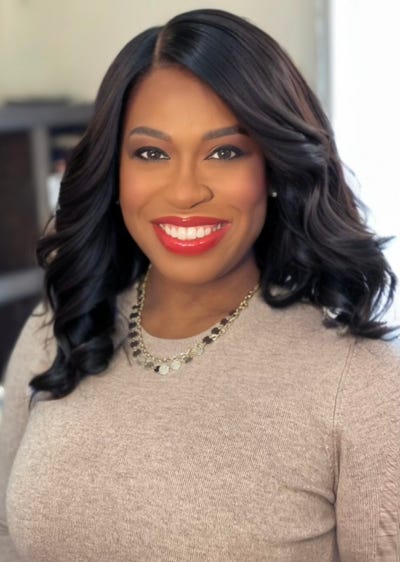Put a co-packer on your priority list
Whether you're new to the industry or expanding operations, a co-manufacturer can make or break your business. We chat with three experts who can help you navigate what can be a frustrating process, from the importance of funding and having a roll-out plan to knowing what's non-negotiable.

When Karen Akouri worked full time as a CPA several years ago, she started whipping up her own salad dressing and marinade concoctions. The idea came to mind once she started reading food labels and winced at the amount of chemicals in them, such as titanium dioxide.
“I googled and found out that it was a whitening agent for industrial paint,” Akouri recalled during a recent conversation at the annual Private Label Manufacturers Association (PLMA) show in Rosemont, Illinois. “That’s when I was like, ‘I cannot believe I’ve been feeding my family this,’ so I started making my own dressings.”
Her aim was to create clean label products made with familiar ingredients that were also her favorite flavor profiles. She tinkered around until she came up with the likes of honey citrus vinaigrette, vegan Caesar, balsamic fig, Mediterranean lemon and others. Each boasted low to no sugar; no artificial emulsifiers, preservatives or dairy; and appealed to her family and friends. The products were so popular, in fact, that she decided to officially launch Drench to sell her signature dressings and marinades on the retail and private-label markets in Michigan. What would set them apart from other dressings, Akouri believed, was that she’d put the ingredient label on the front of the packaging.
Like most aspiring CPG founders, however, Akouri discovered that coming up with a unique concept was much easier than its logistics. Her solid business background helped her with the business plan; however, the biggest challenge was finding a co-packer, or contract packer, who would work with her.
Who needs a co-packer?
For those looking to scale their food businesses, these co-packers, or co-manufacturers, are an essential tool. In most cases, they’re a full-service operation responsible for blending the food and/or beverage products, as well as processing, labeling, warehousing, distributing and packaging them.
Newcomers find it especially challenging to lock in a co-packer for their businesses. For one, Akouri said, many simply don’t want—or need—to take a chance on start-up companies. Also, she continued, all the companies she first approached wanted large minimum orders for production, which left her frustrated.
What saved her from ditching Drench was an introduction to the Women’s Business Enterprise National Council (WBENC), which connected her to a start-up co-packing company. “It was a perfect fit,” she said.
Akouri highly recommended newcomers linking up with organizations like WBENC, as well as PLMA and the Specialty Food Association (SFA) for valuable tips and resources.
“I’ve been learning as I go,” continued Akouri, who launched Drench in 2019. “Business has been amazing. The word is getting out.” Her products are in more than 226 Meijer stores, plus Whole Foods, Hive and Fresh Thyme, all in Michigan.
Connecting with a compatible co-packer
Locking in a co-packer for a CPG newcomer is stressful enough. Add to that, certain dietary requirements. For Howard Allen, making jerk chicken-flavored sausages was all fun and games—until he decided to scale up to make a profit. That’s when it was time to find a co-packer. The biggest issue was that he didn’t have a formula for his Halal-certified products, so he was literally starting from scratch.
“Making 10 pounds of sausage in the house and then making 100 pounds [for retail] were two different things,” said Allen, who founded the Brooklyn-based Maroon Sausage Co. in 2013. Specializing in unconventional Caribbean and West African flavors in a sausage format, his company is a unique find in the marketplace. Allen carefully sought out a local co-packer who would patiently help him realize his vision.
One of the benefits of working with this particular co-packer, Allen explained, was that the company helped him weigh the pros and cons of producing fresh sausages vs. smoked sausages. He went with fresh sausages in the beginning, eventually transitioning to smoked sausages for a more shelf-stable product.
Since then, Allen has gone through several co-packers for his business, even pausing for a bit so that he could connect with one that would be a perfect fit as the company expanded. He had scoured the internet and was even willing to work with businesses based in Atlanta, Connecticut and Chicago, but in the end, it was best for him to stick with a New York operation. More specifically, the company is based in Brooklyn, which is more economical for him.
“The shipping involved with dealing with perishables made the price go right back up, so it made sense to stay in New York,” Allen said.
While Allen found his co-packers through diligent online research, he recommended that newcomers join a social networking group for start-up CPG companies.
He added: “Recognize when you first start that you’re doing a minimal order. Once you start with a co-packer, those numbers are not going to be the same. Hopefully your volume grows, and you can take advantage of that volume.
“In the beginning, you just need someone who is going to listen to you, be communicative with you, and share any sort of insights into the game that they can. It’s not going to be very cost effective, but it will be educational.”
In 2023, Maroon Sausage Co. plans to delve into more African flavors beyond the West African region. That’s why Allen is working to establish a wider distribution plan.
“We started off as a very hyper-local brand, and we’re now trying to grow beyond New York City,” Allen explained. “People are hungry for it [as demonstrated by the response we received at Natural Products Expo East]. People want the product, so we’re putting together a distribution process that will still allow it to get there and still be in good condition, at a great price.”
More valuable tips to finding the ideal co-packer
Akouri and Allen connected successfully with their respective co-packers because they exhibited patience during their search. That’s an important trait to have, yet newcomers must bring much more to the table if they want contracts with more established businesses, said Anthony Escobar, director of sales and marketing, Super Store Industries.
“It’s hard for start-up brands,” said Escobar, who’s worked at the dairy-focused co-packer and private-label retail giant for more than 22 years. “It’s very, very hard because the challenge is that they have this amazing idea and then they have this creative sense they want to be different; they want to have a difference in their shelf presence. They want to have a difference in their formulation. All that creativity is initially so hard to manufacture, but that’s the brilliance of the idea.”
The veteran F&B insider is keen on industry trends; still, he proceeds with caution when dealing with new businesses without proven track records. Escobar, in fact, offered three pieces of valuable advice for new companies in search of co-packers.
Make sure you have funding for your business. “I’ve lost money on startups,” Escobar said. “All those major co-packers—we’re going to vet you. We need to know that you have money. We need to know that you’re going to commit to an annual buy-in, which is really hard. It’s going to be expensive for you. If I say to you, ’Hey, I’m going to give you 150,000 cases of your 7-ounce smoothies,’ you’re going to have to buy that. … If you don’t, then I just charge you my manufacturing fee at the end of the year [which will be super expensive].”
Keep packaging as simple as possible. “The other pitfall that I see is related specifically to packaging,” Escobar continued. “Sometimes you just have to start with what the manufacturer has. What I mean by that, is if I have a round ice cream (container) and you come to me with glass and a screw top, I cannot do that for you. You can do that, but it will cost you so much money. It’s better as a start-up to settle on packaging. Don’t settle on your ingredients. Don’t settle on your formula because that’s really what you’re selling. Don’t settle on your certification, whether you want organic or GMO, kosher or halal. Don’t settle on that, but settle on the packaging. Then when you become a zillionaire, you get whatever packaging you want.”
Find someone who believes in your brand. “You have to find the right co-packer that’s going to believe in you and your product,” Escobar advised. “If you sign that contract, know that’s a commitment from you to them. If you go crazy, with molds, packaging, etc., all those things can sink your business. A lot of the things not considered are, ‘I’ve made my product, now how do I get it to the store? Where am I going to store it? Who’s going to ship it for me?’ He continued, “I’ve worked with some really cool start-up companies, and I’ve seen three out of five I’ve worked with no longer in business. And they spent millions of dollars. They were pretty savvy, but their products just didn’t take off. Newcomers would need a business plan on how they’re going to market and how they’re going to make sales. I know when someone doesn’t know what they’re doing.”
Finally, Escobar likes startups that start small, such as regionally, instead of casting a wide net across the country.
“I will have more faith in a company that’s tested its local market,” he said.
About the Author
You May Also Like

